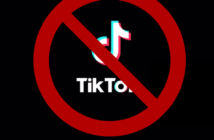Lauren Felts, Advertisement Manager
There is nothing more important than the topic of health. Health education concerns us all, whether personally or professionally. For individuals going into the medical field, it is vital that they take the time to understand health terminology and education so that they can be properly equipped with the knowledge necessary when providing healthcare. For the common person, health literacy can be useful for understanding medical information and how it applies to our daily lives.
According to Dr. Kathleen Van Eerden, dean of the college of health professions and certified RN, “Many health education materials exceed a grade eight reading level making them problematic for a portion of the population to understand.” This makes Saint Leo University’s new health literacy programs more important than ever.
Van Eerden outlined that the new health literacy courses provide an overview of strategies and tools to better understand practices and principles of health.
“The content on health literacy in the health professions courses includes an overview of the problem, principles of effective practice, and specific strategies for developing and evaluating health information,” said Van Eerden. “Students use a variety of tools to evaluate health materials, so they align with the audience level of understanding.”
For spring 2022, there are courses that health students can consider taking. These include Healthcare Language and Communication HCA101, Healthcare Management HCA303, Quality Improvement Methods HCA410, and Health Policy Planning/Evaluations HCA498. For future semesters, Saint Leo plans to implement more of these classes for all students and have them run in both the fall and spring semesters. As of right now, they are only running in the spring of 2022 to health students.
As far as what the classes entail, Van Eerden said that the program emphasizes the fundamental principles of health education.
“Content on health literacy is infused in all of the health professions program classes,” said Van Eerden. “The B.S. Health Education and Health Promotion offered on university campus emphasizes principles of health literacy in developing health education materials and providing health education programming.”
Although these courses are only available to health students currently, Van Eerden mentioned that Saint Leo plans to offer some of these courses to all students in the future. Additionally, she noted that if students do have an interest in health programming, they can take this major into consideration. Students within this major will have the opportunity to “use principles of health literacy in businesses and healthcare and community organizations as they develop materials and teach others,” said Van Eerden.
These courses have no prerequisites required and will help to provide further health education to students and expand their understanding of health-related terminology. Even for students studying for a career in the medical field, the content can be very difficult to comprehend.
According to the Washington Post, one in five people struggle with health information. In another study, one in three people out of 17,309 mentioned that instructions from a health provider were not easy to understand. This further proves that health literacy is crucial when planning to go into healthcare.
“Knowledge of health literacy allows health professionals to craft health messages that can be understood; this results in an increase in compliance, safety, and more positive health outcomes,” said Van Eerden.
Health literacy is the best way to predict the status of an individual’s health. Poor skills in health literacy can lead to major mistakes within the medical field and can also result in poor outcomes for patients. Additionally, when instructions are misunderstood, the dangers can compromise your health and lead to severe side effects.
Van Eerden spoke about a case in Florence.
“An elderly woman living at home was prescribed several medications which were to be taken once or twice a day. She placed all of the pills in a bowl and randomly selected one or two to take at the assigned times without considering what she was actually taking,” said Van Eerden.
Problems such as these are more common than one might think, such as when some people thought that ingesting bleach would help to treat COVID-19. In reality, this could lead to fatal consequences.
Now that these programs are implementing more and more classes relating to health and health issues, students can begin gaining a deeper amount of knowledge and help to improve the health care community in the future and avoid these problems.





